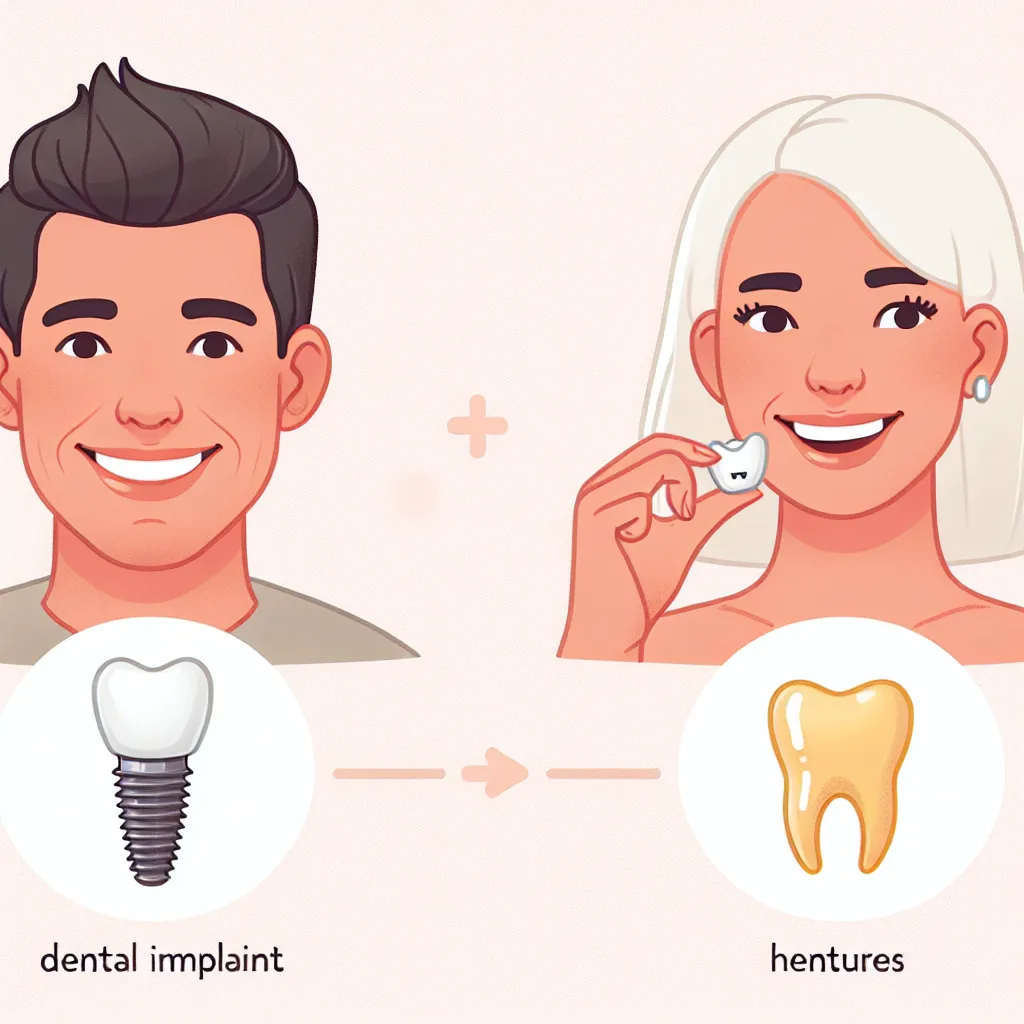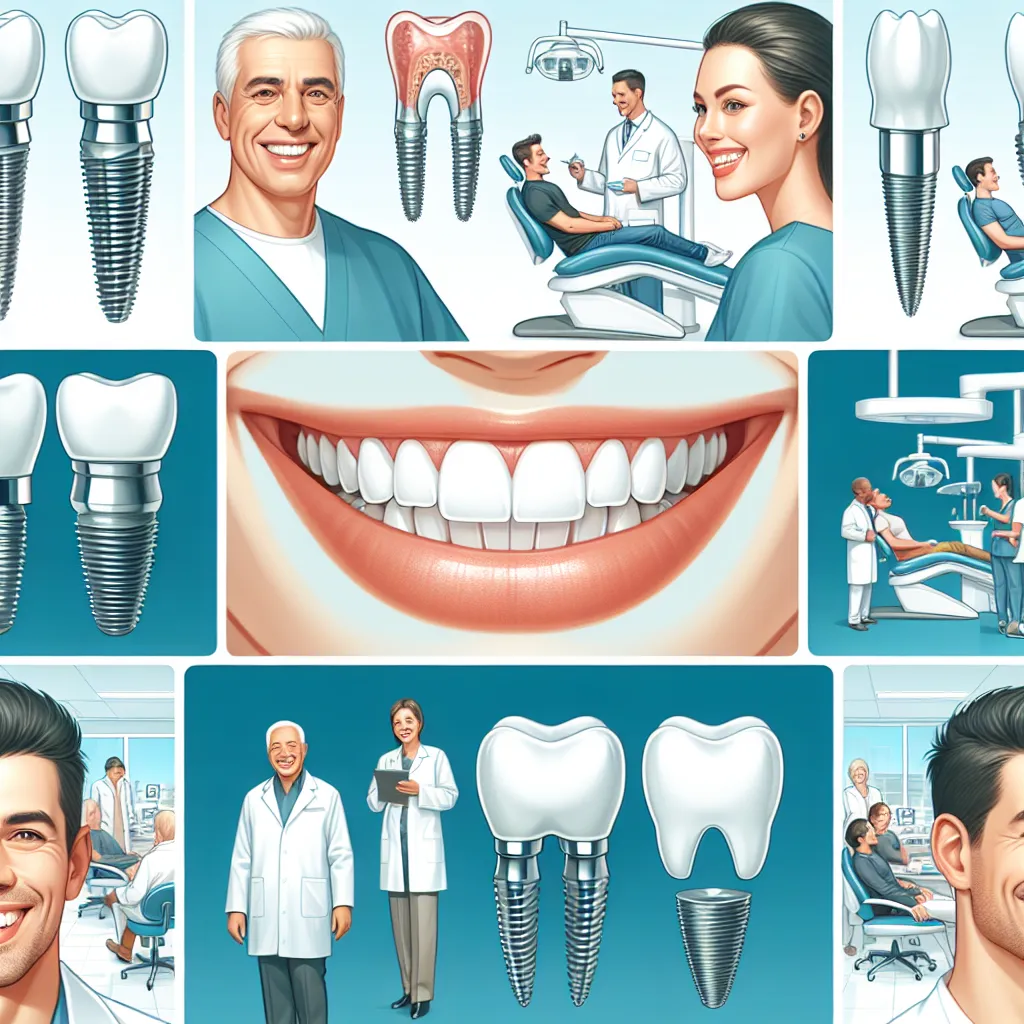Dental implants might sound complicated, but they’re just clever little anchors for new teeth. Instead of fussing with removable dentures or bridges, dental implants offer a way to restore missing teeth with a solution that feels solid, natural, and, honestly, pretty freeing. We care about dental implants because they’re more than just a cosmetic fix—they’re about comfort, confidence, and eating apples without worry. If you’ve ever wondered how dental implants work and why people choose them, let’s break it down together.
What Are Dental Implants and Why Should We Care?
Dental implants are artificial tooth roots—usually crafted from titanium or zirconia—that are surgically placed into the jawbone to hold a replacement tooth, bridge, or denture. Unlike traditional dentures, dental implants fuse with bone, mimicking the strength and stability of natural teeth.
Why does this matter? Because missing teeth aren’t just about gaps in a smile. They can mess with speech, eating, and even the shape of our faces. Dental implants can help us chew steak, chat without lisping, and smile for photos without that nagging self-doubt.
How Dental Implants Work: The Nuts & Bolts
The Basic Structure
Dental implants have three main parts:
| Component | Function |
|---|---|
| Implant Post | Acts as a replacement tooth root in the jawbone |
| Abutment | Connector between implant and replacement tooth |
| Crown | The visible tooth-like part |
These parts work together to create a restoration that doesn’t slip, click, or feel weird like dentures sometimes do.
The Surgical Journey
- Assessment: Thorough dental exam, 3D scans, and health check.
- Implant Placement: The post is placed into the jawbone.
- Healing (Osseointegration): Bone grows around the post—like a tree rooting into soil.
- Abutment & Crown: The connector and visible tooth are added.
Typical Timeline for Dental Implants
| Stage | Time Frame |
|---|---|
| Healing Phase | 3-6 months |
| Final Restoration | 1-2 months |
| Total | 4-8 months |
That sounds long, but the result can last a lifetime.
Dental Implants: Real Benefits and Honest Drawbacks
The Perks
- Natural Look & Feel: No one will spot the difference, not even your dentist at a glance.
- Eat What You Want: Crunchy carrots, chewy bagels, sticky caramels—bring it on.
- No Slipping: Laugh, talk, and yawn with confidence.
- Preserve Jawbone: Stops bone shrinkage that happens after losing teeth.
- No Extra Wear: Unlike bridges, dental implants don’t rely on neighboring teeth.
The Bumps in the Road
- Surgical Procedure: Requires oral surgery and healing time.
- Cost: Can be a significant investment (often $3,000–$6,000 per implant).
- Healing Time: It’s not a quick fix—patience is needed.
- Not for Everyone: Poor bone quality, smoking, or some health conditions can complicate things.
- Possible Complications: Infection, nerve damage, or implant failure (rare, but real).
Who’s a Good Fit for Dental Implants?
Let’s be straight—dental implants aren’t magic for everyone, but many people are great candidates. Here’s what usually makes for a smooth ride:
- Healthy gums and enough jawbone.
- No uncontrolled chronic illness (like severe diabetes).
- Good oral hygiene habits.
- Non-smoker (or willing to quit).
- Commitment to the process and aftercare.
If you’re missing one tooth, several, or all—there’s usually an implant solution. Sometimes bone grafting is needed if the jawbone is too thin, but that’s become pretty routine.
Comparing Dental Implants to Other Options
| Tooth Replacement | Stays Fixed? | Lifespan | Maintenance | Bone Loss? | Cost |
|---|---|---|---|---|---|
| Dental Implants | Yes | 15+ years | Like real teeth | No | $$$$ |
| Bridges | Yes | 7-10 years | Floss threaders | Yes | $$$ |
| Dentures | No | 5-8 years | Soaking & cleaning | Yes | $$ |
Dental implants win for longevity and stability, but they’re pricier and take more time upfront.
Real-World Success Stories
Story 1: The Reluctant Smiler
A 52-year-old teacher lost her front tooth in a cycling accident. She avoided photos and public speaking, worried her denture might slip. After getting a dental implant, she was back on stage, grinning ear to ear, and even started teaching drama club again.
Story 2: The Steak Lover
A retired chef struggled with his lower denture. Chewing steak and apples was a chore. With two dental implants supporting an overdenture, he’s now the proud grill master at family cookouts, savoring every bite.
Story 3: The Young Professional
A 29-year-old with a congenitally missing tooth always felt self-conscious during interviews. After her dental implant healed, she said her confidence soared, and she landed her dream job—no more hiding her smile.
How to Choose If Dental Implants Are Right For You
What Should We Look For?
- Experience of the Surgeon: Ask about training and number of procedures performed.
- Type of Materials Used: Titanium is tried-and-true, zirconia is an option for allergies.
- Full Cost Breakdown: Implants, abutments, crowns, imaging, and possible bone grafts.
- Expected Timeline: Healing and appointments—no one likes surprises.
- Maintenance Plan: Brushing, flossing, and regular dental checks.
- Warranty or Guarantee: Some providers offer reassurance if something goes wrong.
Money Talks: Cost Considerations
Dental implants can be expensive, and insurance coverage varies. Sometimes, only parts of the procedure are covered. Always check with your provider and insurance, and ask for a clear estimate up front.
Most-Asked Questions About Dental Implants
1. Do dental implants hurt?
During surgery, you’ll be numb (or sedated), so pain is minimal. Afterward, expect mild swelling and soreness for a few days, like after a tooth extraction.
2. How long do dental implants last?
With good care, dental implants can last 15 years or more—sometimes even a lifetime. Crowns may need replacement every 10-15 years.
3. What if I don’t have enough bone for implants?
Bone grafting can often build up the area. Your dentist will tell you if this is needed.
4. Are dental implants safe?
Decades of research show dental implants are safe for most people. Complications are rare and usually manageable.
5. Can smokers get dental implants?
Smoking increases the risk of complications and implant failure. Quitting before and after surgery is strongly advised.
6. Will insurance cover dental implants?
Some insurance plans cover part of the process, often not the whole thing. Always double-check before you start.
7. How do I clean dental implants?
Treat them like real teeth: brush, floss, and get regular checkups. Skipping care can lead to gum or bone problems.
Dental implants aren’t just about teeth—they’re about quality of life. From restoring favorite foods to bringing back full, fearless smiles, they can change how we feel about ourselves every day. Dental implants might seem like a big step, but for many, the benefits far outweigh the bumps along the way. If you’re considering dental implants, talk openly with your dentist, weigh the pros and cons, and trust your gut—after all, it’s your smile.
Dental Implants
Dental implants are titanium or ceramic posts surgically placed into the jawbone to replace missing teeth. They act as artificial roots and support crowns, bridges, or dentures. Unlike traditional options like bridges or dentures, implants offer superior stability, durability, and a natural look.
Why choose dental implants?
- Long-lasting (can last a lifetime with proper care)
- Preserve jawbone (prevent bone loss)
- Restore function (chewing, speaking)
- Enhance confidence (smile freely)
How do they compare?
| Feature | Dental Implants | Dentures | Bridges |
|---|---|---|---|
| Stability | High | Low | Moderate |
| Longevity | 15+ years | 5-8 years | 10 years |
| Maintenance | Daily brushing | Removal, cleaning | Special care |
Graph: Long-term success rate of dental implants surpasses 90% over 10 years.
Invest in your smile today! Contact us at [your clinic] for a free consultation and discover how dental implants can transform your life.
Frequently Asked Questions About Dental Implants
Are dental implants painful to get?
During the procedure, you’ll be numb or sedated, so pain is minimal. Afterward, mild soreness and swelling are common for a few days, similar to after a tooth extraction.
How long do dental implants last?
With proper care, dental implants can last 15 years or more, and sometimes even a lifetime. Crowns attached to implants typically need replacement every 10-15 years.
Can I get dental implants if I have low bone density?
Bone grafting can often build up the jawbone to support implants. Your dentist will evaluate your bone quality and recommend the best approach for you.






